Twelve of the residents who are on the ballot for Lincoln’s local election gathered to answer questions at a moderated candidate forum at Lincoln Woods on March 11.
Before the forum, each candidate was asked by the Lincoln Woods Advisory Council, which organized the event, to respond in writing to two questions. Those answers, which were the basis for much of Saturday’s discussion, were published in the Lincoln Squirrel in three batches last week but have now been compiled into a single post here. That compilation includes a previously unpublished response from Jonathan Dwyer, candidate for the Board of Selectmen, who was not at the forum.
The videotaped event (from which these photos were taken) is available online here. Forum questions from moderator August Sanders and the candidates’ answers are excerpted below.
Melinda Abraham
Running unopposed to reelection as a Bemis trustee (one year)
Q: What can we do to increase engagement and diversity?
Abraham noted that the Bemis Free Lecture Series has had several speakers from WGBH because one of the former trustees had a connection there. “We were taking advantage of a one-time opportunity… but we’d like to engage additional speakers. Trying to do it with our limited budget has been our challenge,” she said. One possibility is engaging people who are already in the area on a book your so the trust doesn’t have to reimburse for travel.
Jennifer Glass
Running against Allen Vander Meulen for one-year vacancy on Board of Selectmen; current chair, School Committee
Q: How do you respond to those who might think you’re running for Selectman to get more clout to push through a school project?
A: “Certainly there’s a little piece of that that is true, in that we are on the verge as a town of making generational decisions” on issues including a community center, Parks and Recreation, affordable housing and South Lincoln, Glass said. “A school project is one of them, though clearly it represents the largest dollar amount. What I would say is I have a lot of experience, because we’ve been talking about a school project for so long [and we need to] see all of these parts in context with each other. I’ve had the opportunity to reach out to a lot of boards and citizens in town. I understand what it is to make mistakes, to learn from them, and own up to them keeping the conversation going even when it’s hard. What I’m really interested in is looking at our community as a whole… who are we going to be for the next several decades.
Q: How can we create affordable housing while being mindful of the costs associated with such as effort?
“One of our core values is trying to be as diverse a community as possible… Yes, [affordable housing] may draw on resources, but that’s OK. I think that’s an investment in who we are and who we want to be.”
Noting that the next Board of Selectmen will consist of two newcomers and a member with only one year of experience, Glass said, “I think it’s a really an opportunity. We have that chance to start a little bit from a clean slate and ask question—why is it done this way, how do we make what’s working and move it forward?”
Lynn DeLisi
Running unopposed for Planning Board (three years)
Q: You wrote [in your pre-forum response] that you’d like to see more enforcement of our bylaws. Can you expand on that statement?
A: “When I volunteered four years ago [for the Planning Board], I was very excited about learning something new and contributing to our community. I found that we rigorously try to protect the bylaws put together at Town Meetings, yet we don’t have any method of enforcing what we do,” aside from the limited resources of the police and the building inspector, she said. “I think we need to open a town discussion on how we enforce the bylaws.”
Q: What is your vision for Lincoln Center and what is the role of Planning Board in that?
DeLisi noted that there had been a report on South Lincoln as well as an advisory committee and a consultant, “and we kept on thinking and talking and there was no action.” As a member of the search committee to hire a new town planner last year, “my main drive was looking at their personalities and whether this was someone who had the internal drive to do things that a planner should do. And one thing a planner should do is revitalize the town center… taking the initiative and running with it. That’s exactly what [Jennifer Burney] did. She created a vision for how we go about this” by prompting formation of the Economic Development Advisory Committee [EDAC] and the South Lincoln Implementation Planning Committee [SLPIC].
Another important issue is recreational marijuana, which is now legal in Massachusetts, “but we as a town haven’t come up with how we’re going to handle it. This is a billion-dollar business, as we’ve seen in Colorado. We have to decide what we want. Will there be stores in South Lincoln selling it? Will there be a lot of people growing it? Marijuana used in adolescents clearly affects the brain in a bad way,” said DeLisi, who is a psychiatrist. “I don’t want to see that be more accessible to young people in our community” who could buy cookies and candy containing marijuana in Lincoln Center.
Ruth Ann Hendrickson
Running unopposed for Water Commission (three years)
Hendrickson displayed a graph showing water levels in Flint’s Pond over the past few years. In summer 2016, largely due to lawn watering during the drought, “we used more water than we ever have in the history of the town. Even though we’ve had a normal amount of rain this winter, we’re starting very, very low. It’s very serious and I’m asking you not to water your lawns.” She asked anyone to come to her with ideas about “how to approach wealthy people who water their lawns no matter what… they have people for that and don’t care what it costs.”
Asked what water conservation actions Lincolnites could take, she said, “Not water your lawn. Most lawns will revive when the rains come again.” She also recommended using drip irrigation and re-landscaping with ground cover and bushes, and if grass is used, using a long-root, drought-resistant variety in small areas. Indoors, toilets and the washer use about half the home’s water, and the town provides rebates for purchasing water-efficient appliances.
Lincoln should consider the recent suggestion of a town communications subcommittee, because “I don’t think we’re using the modern communications techniques of the younger generation. Asking someone to come to a meeting just isn’t working any more… We need to reach out to find other new ways to make not only information available, but also discussions, Snapchat or whatever they’re using,” she said.
Rakesh Karmacharya
Running for Housing Commission (one year)
Karmacharya is interested in exploring “nontraditional housing options” such as homeowners renting out rooms in exchange for helping around the house, shopping and other errands, etc. This would open low-cost housing opportunities in Lincoln for younger people (including, for example, teachers at LEAP) while also helping elderly residents remain in their homes for as long as possible.
“There are a lot of elderly who live alone, as well as families with young kids, but there’s not as much interaction [as there could be] between those two vibrant groups… [we might be able to] create surrogate grandparents and surrogate grandchildren” for seniors whose extended family live far away. “I see housing as part of the bigger fabric of community,” he said.
Stanley Solomon
Running against John MacLachlan for Bemis trustee (three years)
“The people I think of that would be good speakers are people from the STEM world and people from outdoors,” said Stanley, 85. “And I promise I will not be running around in Lincoln politics for the next 15 years.”
Q: Do you see a role for trustees to collaborate wth other town commissions?
“The Bemis Trust should confine its activities to providing what the trust was established for. I think the rest of Lincoln has enough committees and people to take care of things they’re there for. I don’t see see this kind of interdisciplinary thing as being beneficial.”
John MacLachlan
Running against Stanley Solomon for Bemis trustee (three years)
“To be honest, after the last [national] election, I felt obligated to get more engaged with the community,” MacLachlan said when asked what inspired him to run for town office after living in Lincoln for only three years. “I’ve been to a number of events where there were mainly elderly people and few young families, or the reverse. It would be nice to have more young families there, with [Bemis Lecture Series] topics that topics that would engage both the elderly and the young.”
MacLachlin has also been asked by the Parks and Recreation Commission to fill an appointed seat, and he said that he could hold both posts, but “would be happy to allow Stanley to take that position” as a Bemis trustee.
Fred Mansfield
Running unopposed for reelection to the Board of Health (three years)
Mansfield was asked about how the town could balance its emphasis on protecting the environment with the need to protect residents’ health in the face of threats from Lyme disease and other tick-borne and mosquito-borne illnesses, and what (if anything) the Board of Health can do to mitigate those threats.
State environmental officials set traps for mosquitoes and monitor what diseases they’re carrying, which can also include West Nile virus and (perhaps eventually) Zika, Mansfield said. However, “we don’t have much in the way of mosquito control because [homes in Lincoln] are so dispersed.” There are a few catch basins in which the town could put larvicide, and if there was a major outbreak of mosquito-borne illness, helicopters could do aerial spraying of insecticide, he said.
As for ticks, Mansfield recommended that residents pull their socks up over their pant legs, put on insect repellant containing permethrin on their socks, and check themselves carefully for ticks. “We have no way of controlling the deer or the mice that are part of the [Lyme disease] cycle, and we won’t really have a solution other than prevention,” he said. According to Mansfield, his fellow Board of Health member Steven Kanner, an internist, has advised that anyone who finds a tick on his or her body, even without an obvious bite or bull’s-eye lesion, to “take two doxycycline pills and forget about it, trying to prevent things rather than treat them.”
The candidate was also asked about the leaf blower issue. In 2015, the Board of Health went on record as saying that airborne particles and noise from gas-powered leaf blowers are a health hazard, but later distanced itself from proposed restrictions on use of the machines by homeowners not in the South Lincoln commercial area.
“Our thought was that the Board of Health doesn’t have an enforcement arm, and Lincoln Police were not interested in taking that on,” he said. “The question is how would they do that. Do they go around with noise meters?” The board instead supports “neighborly agreements” to limit the times of year that gas-powered leaf blowers and string trimmers could be used. If this didn’t work, “we’ll probably go in front of Town Meeting and it will probably be voted down because people don’t want to pay contractors to rake by hand, and electric leaf blowers are not as powerful,” he said.
Patty Mostue
Running unopposed for reelection to the Lincoln-Sudbury School Committee (three years); former Lincoln School Committee member
“What I like about Lincoln is what I also like about the high school—the great sense of community,” Mostue said. Recent innovations at L-S include the We Are Warriors program aimed at students who may not be college-bound that helps them feel “they belong in the high school no matter what their path to higher education or work.”
“There are new people moving into Lincoln who don’t always take part in Town Meeting… I think it would be a danger to lose the sense of community that has to be guarded and nurtured all the time,” Mostue said when asked what she would like to see changed about Lincoln.
Rick Rundell
Running unopposed for reelection to the Planning Board (three years)
Q: In your written response, you said you’d like to see broader civic engagement. Is there a way the Planning Board can help with that?
Rundell noted that there are now greater opportunities for participating in the planning and economic development process with the creation of the EDAC and the SLPIC. The EDAC will be help in promote the economic health of the town by bringing together people in the business and nonprofit communities, including those who are not Lincoln residents but have an interest in seeing those businesses succeed.
Laura Sander
Running unopposed for the Board of Assessors (three years); current member of the Finance Committee
As a Finance Committee member, Sander said she has “learned a lot about Lincoln finances—in particular, property taxes, which account for about 76 percent of our revenue. The oversight of that resource is really critical to how we function. We really need to be aware of our taxing capacity and how we can best utilize that. This is outside the purview of the Board of Assessors, but as a town, as we think about more commercial development or more affordable housing, we have to think about the impacts and what that means to us as taxpayers.”
Q: You wrote, “I would like to ensure that the oasis that we work hard to maintain is not an enclave that is separate from the rest of the world and its concerns.” Can you give a couple of examples of how to work harder to promote this vision?
A: “I get really concerned about the fact that we can pay a lot of lip service” to things like METCO and affordable housing, “but we need to engage with each other,” Sander said. “I don’t have specific solutions for how to do that… but if we’re not engaging somehow, we’re not getting enough out of that. We have to think about how do we create forums that allow people to really interact.”
Allen Vander Meulen
Running against Jennifer Glass for one-year vacancy on the Board of Selectman; current member of Housing Commission and SLPIC
Q: Can you expand on your definition of “the Lincoln way” and how it can be improved upon?
A: “To me, the Lincoln way means that we’re all part of the community. There’s not some elite that’s driving us; everyone’s voice is important… even if you disagree with someone, [making sure] their voice is heard and taken seriously, making sure that one group doesn’t get to trump the other or create a lot of division that doesn’t need to be there,” Vander Meulen said. In his previous career as an IT manager he said he often dealt with situations where “everyone was at each other’s throat or had no idea how to get where they needed to go,” and his skill was “building consensus and a sense of camaraderie and mutual direction.”
“As a minister and a volunteer, your focus is on building the community, facilitating dialogue, and making sure the people who aren’t involved are. One thing you can’t do is just sit back and wait for people to come to you. I know too many churches that died thinking a fresh coat of paint on the front door and new carpeting would solve their problems.”
Of his opponent Glass, Vander Meulen said, “I’ve been very impressed with her. No matter who wins this election, you’ll see both of us around for a very, very long time.”
“That’s either a promise or a threat,” Glass said to laughter.
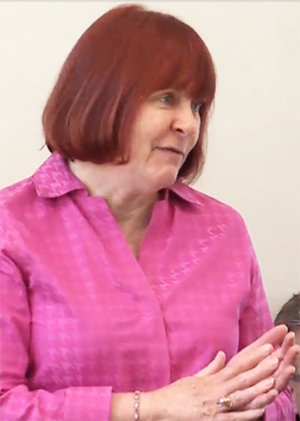
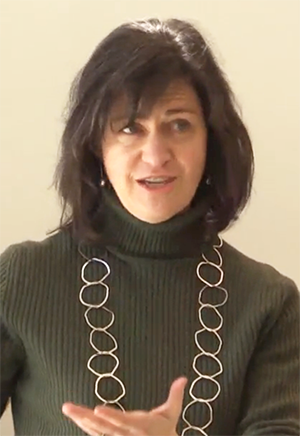
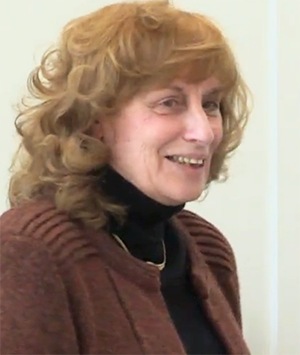
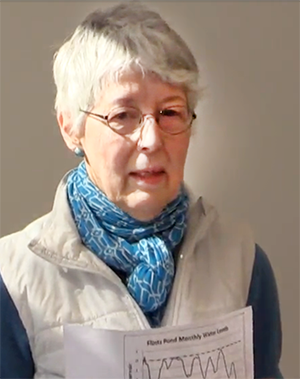
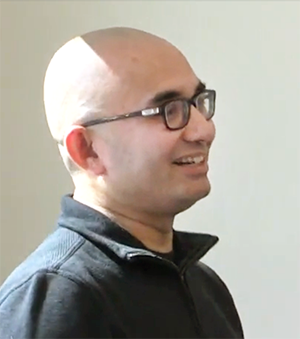




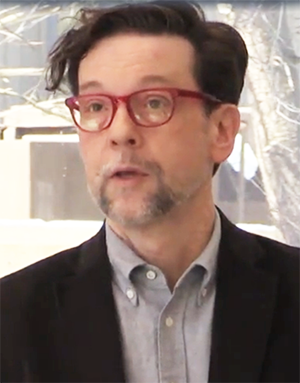
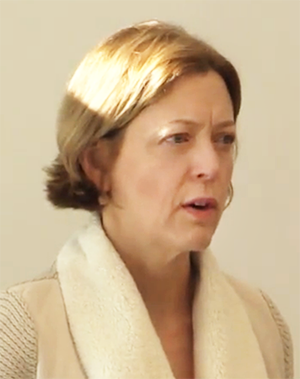

Leave a Reply